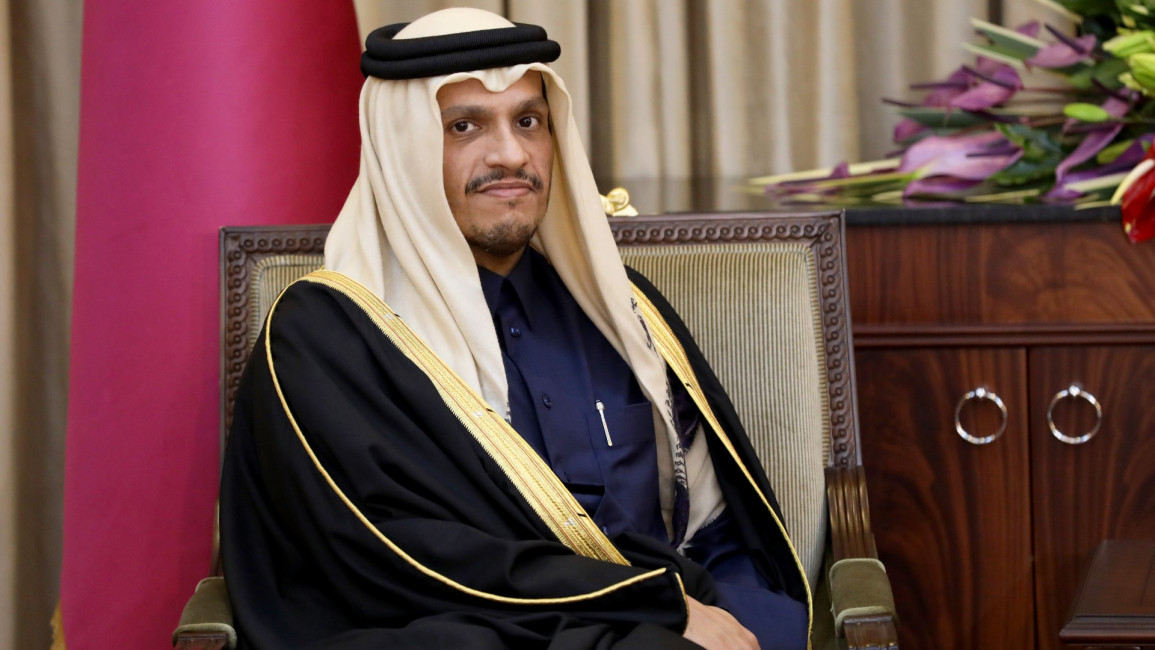Qatar 'optimistic' about Gulf crisis solution, foreign minister says
Qatar's foreign minister said on Friday that progress is being made in resolving the three-year-long Gulf crisis that left the country blockaded.
At the Mediterranean Dialogues forum in Rome, foreign minister Sheikh Mohammed bin Abdulrahman Al-Thani announced that talks mediated by Kuwait are signalling an advancement in finding a diplomatic solution to the crisis, but didn’t specify if a breakthrough is imminent.
“We are optimistic that we will reach a solution to the Gulf crisis, but we cannot guarantee that all problems will be solved", Sheikh Mohammed said, adding that "any solution to the Gulf crisis must be a comprehensive solution that preserves the unity of the Gulf."
He urged the importance of making solid steps forward to harmonise the Gulf region, but affirmed that Qatar would not sacrifice its sovereignty in the process.
“We believe the end of the crisis is important for the security of the region and for sake of our people. This crisis needs to end based on mutual respect and the rights of all people of the Gulf.
“Qatar is not differentiating between any of the countries. We hope things will move in the right direction but we cannot yet predict if it will be imminent and if it will be resolved in one day,” Sheikh Mohammed said.
The foreign minister's statements come after a visit by Jared Kushner, advisor and son-in-law to US President Donald Trump, to Qatar and Saudi Arabia, during which he met Qatar’s Emir Sheikh Tamim bin Hamad Al-Thani and Saudi Arabia’s Crown Prince Mohammed bin Salman.
Kushner's visit came in the wake of press reports confirming that Riyadh and Doha will soon reach an agreement ending the estrangement that lasted more than three years.
The Gulf crisis was triggered by an illegal air, land and sea blockade on Qatar in June 2017, when Saudi Arabia, the United Arab Emirates, Bahrain and Egypt severed ties with Doha over false allegations it supports terrorism.
Qatar has vehemently denied the allegations and remained consistent on its stance throughout the ordeal.
The four nations set a 13-point list of conditions for Qatar to meet in exchange for lifting the blockade, which at the time Doha blasted as a violation in sovereignty.
“There is no country that is in a position to place demands on the other. There are differences that need to be overcome,” Sheikh Mohammed said, when commenting on the conditions.
“If there are any disagreements, there must be a discussion to resolve them. We need to build our relationship based on mutual respect of sovereignty,” he added.
Last month, regional mediator Kuwait renewed efforts to form a diplomatic solution to the crisis by working on the main contentious topics that have served as "the main reason for a delay" in resolving the diplomatic crunch.
“It will take time to heal the wounds even if the crisis comes to an end, a deal will involve all countries not just one,” Sheikh Mohammed said, likely referring to Saudi Arabia.
“We have been trying to engage with all people and Gulf unity will be at the end of this,” he added.
Follow us on Facebook, Twitter and Instagram to stay connected



